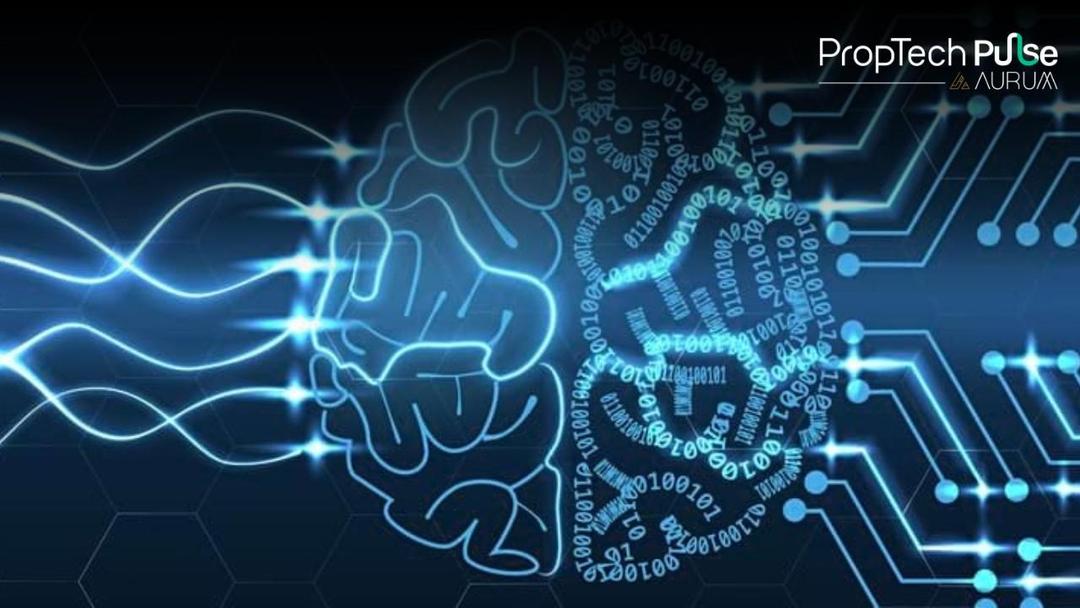Technology and Innovation

What is IoT and How It Applies to Real Estate?
IoT refers to a collection of devices that talk to each other and share information without the need for human interaction. In real estate, IoT allows for the development of intelligent homes, automates building management systems, and optimizes property operations. IoT allows homeowners, occupants, and property managers to remotely control parts of a property, including lighting, security, climate control, and others.
Key Applications of IoT in Real Estate
IoT is transforming real estate with smart solutions. Let’s explore how automated systems and smart buildings enhance efficiency, security, and convenience.
Smart Buildings and Automated Systems
- IoT provides automation of security systems, lighting, and HVAC to enhance efficiency and reduce operation costs.
- Smart sensors enhance energy efficiency by regulating lighting and temperature based on the number of people.
IoT-Driven Property Management: A Game Changer
- Smart sensors and networked devices help property managers monitor maintenance needs and optimize building operations.
- Real-time data analysis supports anticipatory decision-making, saving costs and enhancing tenant satisfaction.
Tenant Experience Enhancement through IoT
- IoT improves tenant satisfaction by enabling features such as voice-controlled lights and smart climate control.
- Tailor-made automation conforms to the unique tastes of each tenant, making living easy and convenient.
Benefits of IoT in Real Estate
Apart from automation, IoT has many benefits for real estate. One of the main advantages includes energy efficiency and sustainability, where advanced technologies maximally utilize resources, minimize expenditures, and encourage green building practices.
Energy Efficiency and Sustainability
- Maximized Energy Utilization – IoT sensors and smart meters monitor usage in real time, enabling consumers and companies to minimize wastage.
- Automated Climate Control – Smart thermostats automatically adjust heating and cooling based on occupancy and weather, so they are more efficient.
- Sustainable Building Management – IoT enables green building initiatives by tracking water usage, lighting, and overall energy efficiency.
- Lower Carbon Footprint – With the integration of IoT in property, real estate reduces energy consumption, leading to more sustainable property.
Predictive Maintenance and Cost Reduction
- Real-Time Equipment Monitoring – Sensors driven by IoT identify problems in HVAC, plumbing, and electrical systems ahead of time to prevent critical breakdowns.
- Automated Maintenance Alerts – Property managers get instant alerts for required repairs, minimizing downtime and repair expenses.
- Extended Asset Life – Ongoing building system monitoring optimizes their function, increasing the life expectancy of these assets.
- Reduced Operating Costs – Through the prevention of abrupt downtime and maximizing resources, IoT enables property owners to cut maintenance costs.
Challenges in Adopting IoT in Real Estate
Though IoT offers many benefits to real estate, it is not without its challenges. Among the biggest of these are data security and privacy, as connected devices gather greater amount of sensitive data, thereby raising cybersecurity threats.
Data Security and Privacy Concerns
With the vast volume of data collected by IoT devices, security and privacy are the most important things to protect. Cyber attacks, data breaches, and backdoor access to sensitive data can endanger not just occupants but also property owners.
Scalability and Maintenance Challenges
As real estate projects expand, scaling IoT systems to accommodate more devices and users can be challenging. Managing a growing network of connected devices requires ongoing maintenance, software updates, and technical expertise, which can strain budgets and resources. Without a clear long-term strategy, IoT implementations may become outdated or inefficient over time.
Regulatory and Compliance Hurdles
The adoption of IoT in real estate must comply with various local and international regulations regarding data protection, tenant rights, and smart building standards. Navigating these evolving legal frameworks can be complex, and non-compliance may result in legal consequences, fines, or restrictions on IoT usage within certain jurisdictions.
User Adoption and Resistance to Change
Implementing IoT technology in real estate often requires a shift in how tenants, property managers, and owners engage with their spaces. Resistance to change, lack of understanding of the technology's benefits, and the need for user training can delay or hinder full adoption. Ensuring that stakeholders are properly educated and comfortable with IoT systems is crucial for successful implementation and ongoing usage.
To prevent such problems, robust encryption, multi-factor authentication, and periodic security patches are needed. However, some property stakeholders may lack the skills or resources to install such robust security features effectively.
Infrastructure and Integration Issues
IoT integration into current real estate infrastructure is normally complex and costly. Current structures may have to be fundamentally changed to support IoT-enabled systems, with compatibility across various IoT platforms and devices creating operational inefficiencies.
Standardization to support end-to-end seamless communication between various technologies is required but getting increasingly difficult in the dynamic IoT environment.
Future of IoT in Real Estate: What to Expect?
As technology continues to evolve, IoT is set to play an even greater role in shaping the real estate industry. Here are some key trends and advancements we can expect in the coming years:
- AI-Powered IoT for Smarter Real Estate – AI-driven IoT will enhance automation, predictive maintenance, and energy efficiency, reducing costs and improving building management.
- Expansion of Smart Cities – IoT will power smart city initiatives, optimizing traffic management, utilities, and urban planning for a more connected and sustainable real estate ecosystem.
- Digital Twins for Real Estate Planning – Virtual replicas of buildings using real-time IoT data will enable developers to test scenarios, optimize performance, and improve decision-making.
- Blockchain for Secure IoT Transactions – Blockchain will enhance security and transparency in property transactions, automating lease agreements and ensuring data integrity.
- Personalized Tenant Experiences – AI-powered IoT will offer smart home automation, adapting lighting, climate, and security settings to individual preferences.
- Sustainability and Net-Zero Buildings – IoT-driven energy management and smart grids will promote net-zero buildings, reducing carbon footprints and enhancing sustainability.
Conclusion: Why IoT is the Future of Smart Real Estate
In conclusion, IoT is transforming the real estate market by making real estate properties smart, efficient, and secure. From automation to sustainability, the influence of IoT is undeniable. As technology advances, IoT implementation will keep expanding, fueling innovation and changing the real estate space into a more connected, data-driven, and future-proofed industry.

AI Agent
25 Feb 2026
4 Min Read
Decision Momentum Index in Real Estate: How Pulse AI Tracks Buyer Forward Movement

AI Agent
24 Feb 2026
4 Min Read
Information Parity Engine in Real Estate How Pulse AI Ensures Equal Buyer Clarity

AI Agent
23 Feb 2026
4 Min Read
Buyer Risk Calibration in Real Estate: How Pulse AI Balances Perceived Uncertainty
Unlock the Latest in Real Estate
News, Infographics, Blogs & More! Delivered to your inbox.
“Data that drives action. Insight that inspires action. Technology that empowers action.“
“Data that drives action.
Insight that inspires action.
Technology that empowers action.“






